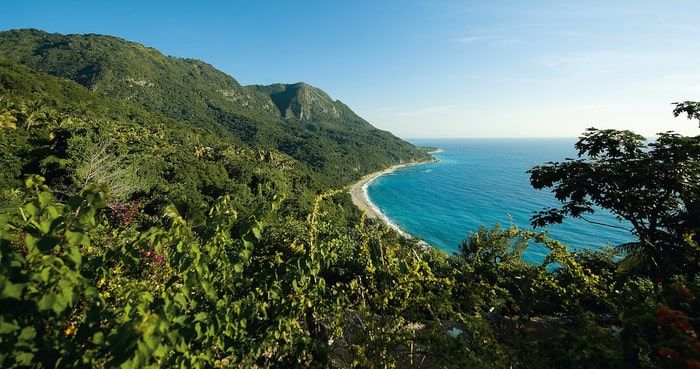Coffee Routes in the Dominican Republic, a unique experience in the Caribbean
In the province of Barahona, in the southwest of the Dominican Republic, you can find coffee routes where you can appreciate the ways of harvesting, roasting, and grinding the grain.

In the province of Barahona, in the southwest of the Dominican Republic, you can find coffee routes where you can appreciate the ways of harvesting, roasting, and grinding the grain. Amid tropical forests, mountains, and rivers, numerous trails invite tourists to discover all the stages of production of the renowned coffee of the Dominican Republic and have direct contact with the producing families.
Touring the coffee plantations in the north, south, or center of the Dominican Republic, getting to know the roasting and grinding processes, bonding with the communities that produce it, and enjoying the most delicious tastings is one of the most wonderful ways to experience first hand the nature and culture of the country.
"Touring some of the numerous coffee routes is an excellent option for visitors because it is an experience that combines aroma and flavor with incredible natural landscapes and Dominican culture," says Magaly Toribio, Marketing Advisor to the Ministry of Tourism of the Dominican Republic (MITUR). "These are options within the framework of the commitment to sustainable tourism in our country."
The cultivation of coffee occupies a prominent place in the central area of the Dominican Republic. Amidst mountains, valleys, numerous rivers, and dense vegetation, the provinces of Hermanas Mirabal and Monsignor Nouel are home to several trails to explore the sowing, cultivation, and processing of the grain. The route of Café Atabey, on the hills of the municipality of Bonao, and the route of Café Jamao (organic), on the hills of Salcedo, are two recommended routes.
Both have very different trails, with different vegetation, difficulties, and travel times, but all emphasize the natural beauty of the area and the possibility of coming into direct contact with families who have generations dedicated to coffee. In addition to visiting the coffee plantations, the trails allow you to walk among fruit trees and wild plants, watch the birds or take a refreshing bath in one of the many rivers.
On the route of Café Atabay, at an average height of 950 meters, are the ecological trail El Higo, at the end of which the local community sells handicrafts in bamboo, El Cafetal, with its beautiful plantation under shade, and El Candongo, which can be accessed by mule to enjoy incredible panoramic views of the entire valley of Bajo Yuna and Cibao valley. The route of the Jamao Coffee is composed by the path La Confluencia, where the rivers Jamao and Partido, El Cafetal and the path La Cueva de Los Caños join, a route that goes into an enormous cave in almost complete darkness, full of stalactites; not to be missed for those who are in good physical condition.
Also in the province of Barahona, in the southwest of the country, you can find coffee routes where you can appreciate the ways of harvesting, roasting, and grinding the grain. The path of Café Toral is a one-hour tour through this well-known plantation located in the mountains of the municipality of Polo. Another good option in this area is to visit Cafeto Madre with local guides and combine this excursion with a tour through the Cachote cloud forest. In Polo, there is also the Simona Esmeralda Feliz Cooperative, whose small factory and processes can be seen from November to January.
The Jarabacoa mountain range, with its rivers and green landscapes flanked by dense pine forests and mountains, is another excellent destination for travelers who love good coffee. The Monte Alto Coffee Factory offers a complete tour of its organic coffee production facilities. In addition to discovering the process from bean to cup, the tour culminates with multiple tastings of freshly brewed coffee in the local cafeteria.
Puerto Plata, in the north of the country, also has coffee tours. From the town of Cabarete, Cabarete Coffee Company, a supplier of organic coffee grown under shade and according to the principles of fair trade, offers a tour of multiple coffee farms in the area. Meanwhile, near the border between Puerto Plata and Santiago, is the Pedro Garcia trail, which was reforested and renovated to encourage coffee production in this rich area of rivers embraced by the Cordillera Septentrional. The excursion offers the possibility of roasting, grinding, and preparing one's cup of coffee, as well as buying fresh beans to give to family and friends.
Source SinEmbargo




